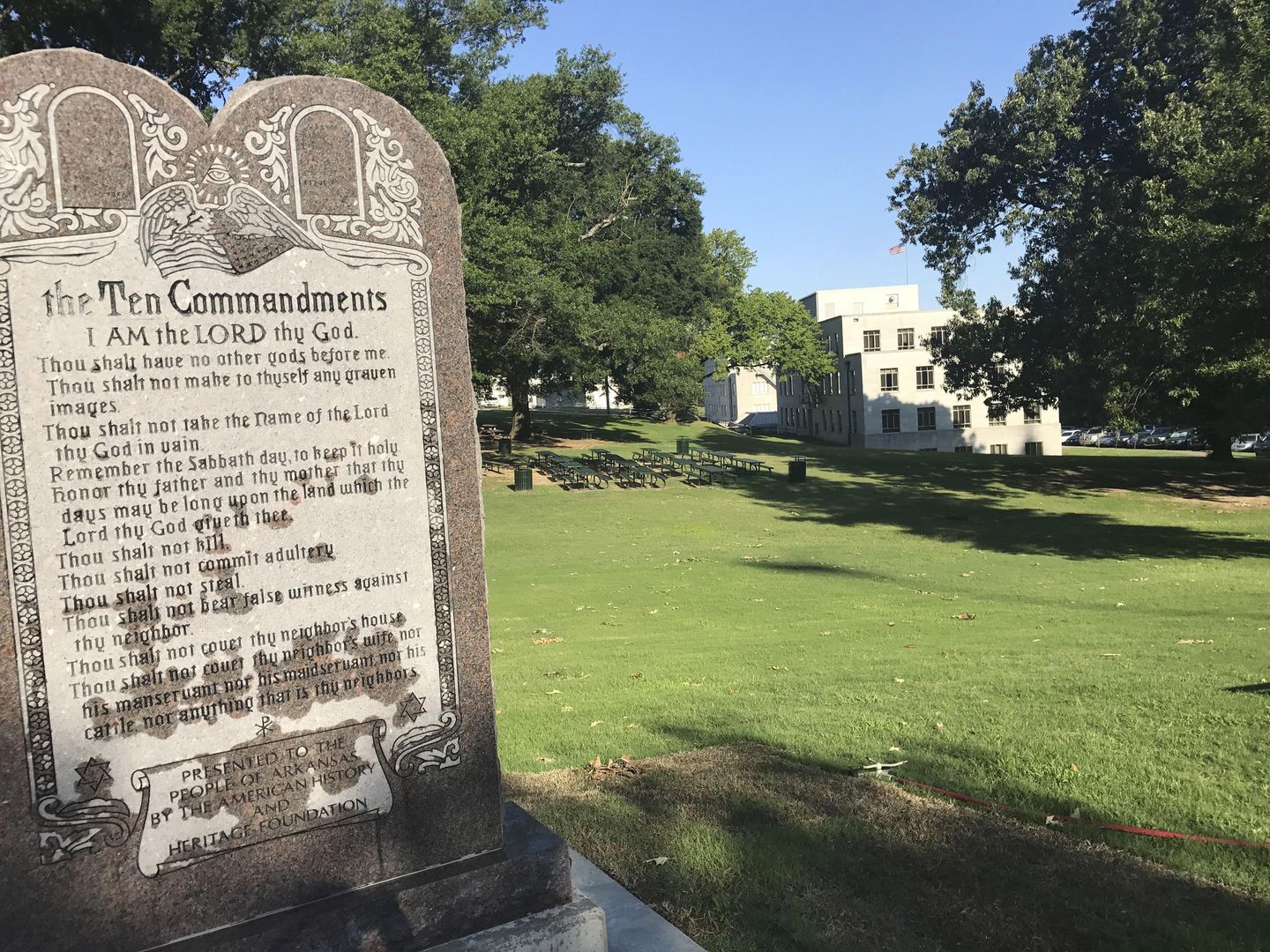
Few U.S. adults support allowing religious schools to become tax-funded public charter schools, but a majority favors allowing religious chaplains to provide support services for public school students, a new poll finds.
The survey from The Associated Press-NORC Center for Public Affairs Research shows the complexity of Americans’ attitudes toward religious expression in schools, which varies depending on the kind of expression and sometimes crosses partisan lines.
The findings also highlight tension points in the country’s long-standing debate over the role of religion in public schools, which continues to drive legislation and legal action.
Recent examples include a lawsuit against a new Arkansas measure that requires the display of the Ten Commandments in classrooms, a push by lawmakers in multiple states to allow religious chaplains to serve in student support roles in public schools, and the U.S. Supreme Court’s 4-4 decision that blocked plans for a publicly funded Catholic charter school in Oklahoma.
On some issues like teacher-led prayer, White evangelical Protestants and Black Protestants — who traditionally find themselves on opposite sides of the political aisle — are both largely supportive, dividing them from other religious groups. White evangelical Protestants are more likely than many other religious groups to say religion has “too little” influence on what children are taught in public schools.
About 6 in 10 U.S. adults say that religious chaplains should be allowed to provide support services for students in public schools, but most do not think teacher-led prayer or a mandatory period during school hours for private prayer should be allowed in public schools.
Texas became the first state to allow chaplains in 2023. After that, lawmakers in several states considered similar bills. It’s illustrative of an ongoing conservative push to bring more religion into the classroom, which advocates of church-state separation are countering.
School chaplains are only somewhat divisive among religious Americans, although they’re still opposed by a majority of nones, the term for atheists, agnostics and those with no religion in particular.
But White evangelical Protestants and Black Protestants stand apart from Catholics, White mainline Protestants and nones in their support for teacher prayer and mandatory prayer periods in public schools.
The questions exposed fault lines among partisans on both sides of the political spectrum. Democrats are firmly opposed to teacher-led prayer and mandatory school prayer periods but divided on chaplain support services in public schools, while Republicans are firmly in favor of chaplain support services and teacher-led prayer but divided on a mandatory school prayer period.
Americans are more likely to oppose allowing religious schools to become tax-funded public charter schools than to favor this. About 4 in 10 are opposed, while roughly one-quarter are in favor and about one-third are neither in favor nor opposed.
In general, U.S. adults are more divided on tax-funded vouchers that help parents pay for tuition for their children to attend private or religious schools of their choice instead of public schools. Similar shares oppose and favor this; about one-quarter are neutral.
In May, the Supreme Court’s tie decision effectively ended what would have been the nation’s first religious charter school, but it left the issue unresolved nationally.
There isn’t majority support for allowing religious schools to become tax-funded public charter schools among any of the major religious groups analyzed, although about 4 in 10 White evangelical Protestants are in favor, compared with about 3 in 10 Catholics and Black Protestants and about 2 in 10 White mainline Protestants. Substantial shares of all of these groups neither favor nor oppose this idea. Most nones oppose allowing religious schools to become tax-funded public charter schools.
Against the backdrop of favorable decisions by the conservative-majority Supreme Court, several states have expanded school voucher programs in recent years.
Besides discrimination concerns and church-state issues, opponents worry that school vouchers take money from public schools, which serve most U.S. students, and benefit higher-income families that already use private schools.
• About 3 in 10 U.S. adults say religion has “too much” influence on what children are taught in public school. About two-thirds of White evangelical Protestants say religion has “too little” influence.
• About half of Americans favor requiring public schools to provide parents with lists of books that are available to students, while about one-third neither favor nor oppose this and 14% are opposed.
• Nearly half, 45%, of U.S. adults oppose religious exemptions for childhood vaccines that are required for students attending public schools, while roughly one-quarter are in favor and about 3 in 10 are neutral.
• Most adults say freedom of religion and church-state separation are “extremely” or “very” important to the United States’ identity as a nation, but 81% say religious freedom is important, compared with 64% who say this about separation of church and state.
The AP-NORC poll of 1,158 adults was conducted June 5-9, using a sample drawn from NORC’s probability-based AmeriSpeak Panel, which is designed to be representative of the U.S. population. The margin of sampling error for adults overall is plus or minus 4 percentage points.












